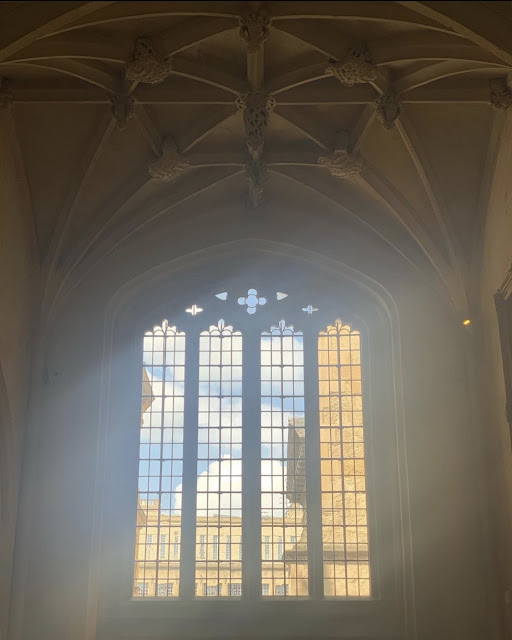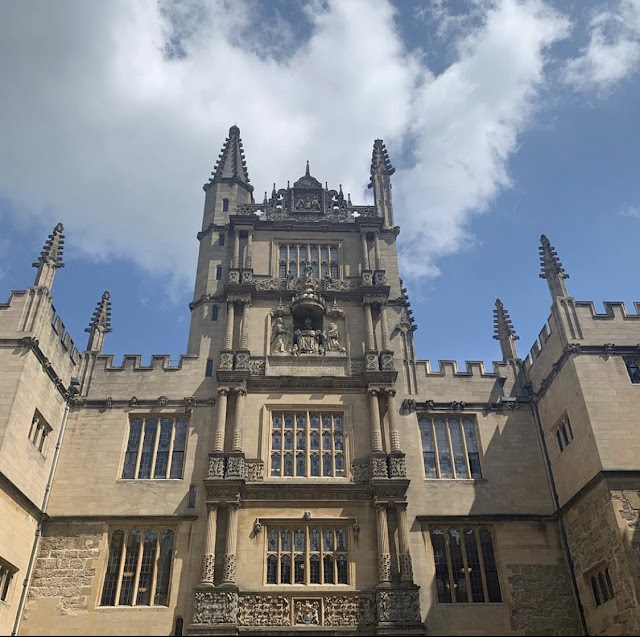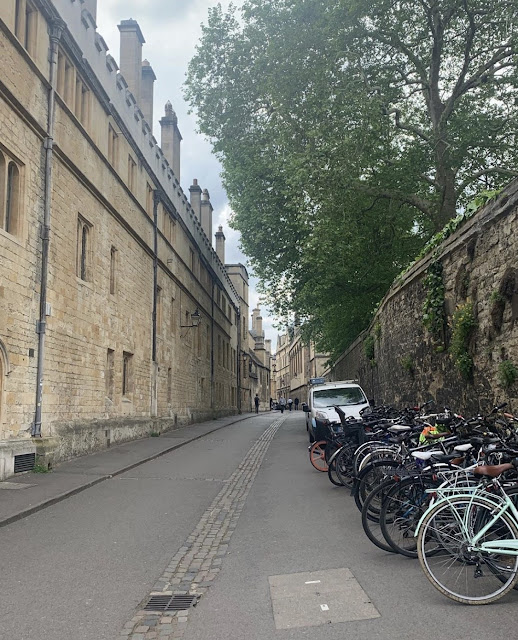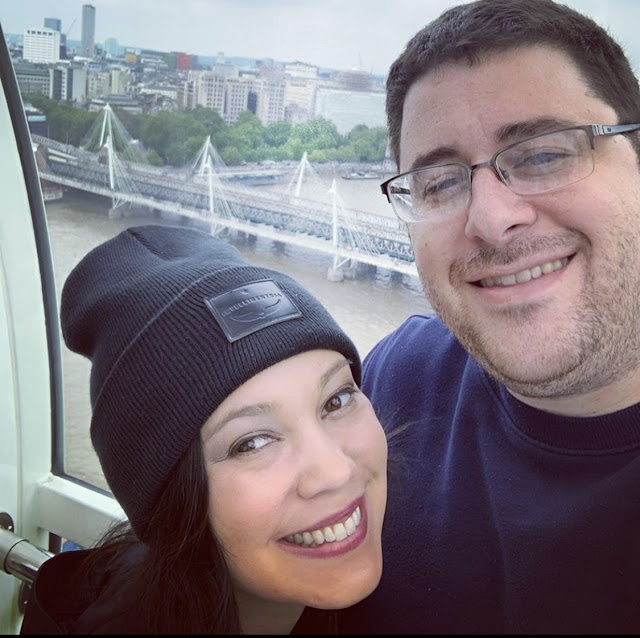It is dusk as I write.
Deep denim blue jean dusk,
little molecules of white in the darkening sky
showing through the blinds before night.
In the clutter and clatter of inside,
the bulb of a single lamp sheds itself
on days years ago written down,
talking about how things come together.
I don't like to throw things away, making garbage,
more trash for the pile. This goes especially for all those
gifts, like the tiny lime-green plastic Buddha I received,
five birthdays ago from the waiter at a Chinese restaurant
who saw how sick I was, ill inside as I celebrated another year
surrounded by friends and family and coworkers, some who
I've lost contact with, some who I've cut off, some who are still
very present in my life. So many odds and ends, special rocks, even,
treasures to remember trips and happy accidents,
small pieces from the ground.
I don't collect -
but I save every last bit waiting
to prove worthwhile in the long run.
Today, I put Buddha in front of a candle
for a photo and it looked awful. Buddha's
head was on fire with what looked like a
flaming feather; the whole thing looked like
a mockery of Indians and Buddhists and Asians
alike.
It's the lens that scares me. It's OK to notice it,
its' cutting to the core, its' wideness. That uneasiness
you feel makes it OK to intervene too, to fix it, make of it
something better, something soft, something
not needing to pierce with its sterility, but a shaping -
needing not a clearing out and hauling away,
but a reassessment, rearrangement, a remaking of it all:
a coming together. Only then, after all of that trying
and testing, trial and error, one actually has a chance
to look and see what it is that simply needs to go
Poof! Like magic.
Wednesday, March 25, 2020
Thursday, March 19, 2020
An English Honeymoon: Day VIII
The eighth day of our visit to England was set for a trip to the University of Oxford. The University of Oxford is in a town called Oxford in England. During our visit, we learned about the age-old tension between the people who take residence there mostly outside and around the campus (many of whom have lived there for many years) and the college campus with its students, professors, businesses, and other faculty. For the most part though, it seems they've made it work. I wonder what kinds of problems they had... I recall one being that of students trespassing on other people's property whilst under the influence.
When we stepped off the train and into the town of Oxford, we were not on the campus immediately. Residential homes, numerous churches, and other businesses led us into the campus. After a few blocks, we began to see university town.
There was one tree which was latched onto a building by some type of contraption, as if the owners of the residence put the tree on a leash, commanding it to stay close, not stray too far or else it would block the path. You must grow with us, not away! The tree seems to have had no other choice but didn't seem to be complaining either, admitting perhaps that this position it was forced into was probably for the best. An odd but special formation, unlike anything else.
We entered a small abbey to eat. It was a cove-like space, thick with the smell of soups, sandwiches, teas, and coffees, tinkling with the sounds of people sharing a spirit of community tied to contemplation and thought, dedicated to the intellectual. At least... through my rose-coloured glasses. And why not remember it that way?
When we stepped off the train and into the town of Oxford, we were not on the campus immediately. Residential homes, numerous churches, and other businesses led us into the campus. After a few blocks, we began to see university town.
There was one tree which was latched onto a building by some type of contraption, as if the owners of the residence put the tree on a leash, commanding it to stay close, not stray too far or else it would block the path. You must grow with us, not away! The tree seems to have had no other choice but didn't seem to be complaining either, admitting perhaps that this position it was forced into was probably for the best. An odd but special formation, unlike anything else.
Slowly, slowly, we began to walk into the University of Oxford campus. It was thrilling. I was so in awe of the students on their bikes, carrying their bags or wearing backpacks, in deep thought or else engaged in lively conversations with one another. I longed to be a university student in that moment. There's a romance to the austerity of academia, its dedication to thought, and of course its discipline.
The university, aware of its tourists, had some guards in front of its many locked and gated courtyards. But we could see through, and we imagined C.S. Lewis and Tolkien and Oscar Wilde, and all those other boys and men, working hard at things that maybe seemed to foolish to some (commonplace for many of those in the humanities). I'm thinking now... I cannot name one woman who attended Oxford. Must look into that... I'm sure there's one I'm familiar with.
We walked and looked and peered and let ourselves be astounded by age and history, trying to picture this place other times rather than the one we were in, enthralled by the fact that it was still standing right where we stood - a now familiar feeling since we stepped onto British land. And we learned, later, from the librarian who gave us a splendid tour of the Bodleian Library, that Oxford had a history of struggle. In competition with Cambridge University, Oxford wanted to be just as good of a university. It was harder for Oxford primarily for the fact that they had less money. Many years were spent where the boys and men who schooled there didn't have warmth in winter, and sat for hours in a room that looked like the ribs of a gothic whale, studiously attempting, and many succeeding, learning Latin. The carvings within the walls, the only thing other than the mostly dreary outdoors they could daydream into, were covered in hidden symbolic messages from saints, donors (as in those who gave money to the university), religious figures, and spiritual iconography... there were many rooms I dared not photograph. We weren't told not to, but out of respect for the speaking librarian, I didn't. But we were able to see rooms where professors and staff held important meetings - in the room I'm remembering there was a sun clock, which was how they were supposed to tell the time without the clocks we have now, but the clock was dysfunctional for one reason or another, something to do with geometry of the sun coming in through the window and being blocked by an object, maybe a statue. And another room in which students were judged for some misdemeanor... complete with a place for a judge or head professor to sit... we ourselves were able to sit in that room and I filled up with awe realizing I was sitting and walking within a very small space once inhabited by Oscar Wilde himself.
We were able to see one of the oldest parts of the library, a creaking, dark, damp, and dusty space filled with streams of sunlight and books made and bound by leather, some behind glass, a corridor filled with the lamplight of a dozen students hard at work, lost in thought, concentration so pure that it suffused the enclosures with a reverie granted by the all the animas of knowledge.
When we exited, we hung out in the courtyard for a little while, considering it all.
On the way back to the train (back to Kensington Square) I thought - and still am thinking - of passages. Our passing through time, our human years moving to generations and onto centuries. Zeitgeist, the spirit of ages, changing and evolving with culture and history. Some places remain the same in their structure, such as the University of Oxford, a grand testament of to the hub of life-centered learning and growth. We were grateful to see it.
How does our Zeitgeist fair now? I believe it is in ill, ill condition. I comprehend nothing but depth from those intellectuals from the periods before us. However, I'm sad to say that now, in our current moment, I only feel something hollow and shallow in intellectual endeavor, particularly here in America, and perhaps this is because our foundations are completely wrong; the starting motivations of our aims and ideals have been based off of selfish and greedy motivations, motivations which have everything to do with the protection of egos, egos not worth saving especially if they run of the ruination of those less than.
In a strange turn, I'm very, very glad to say, I am so much relieved that I have not pursued higher education just yet, if ever. My motivations for previous degrees have been utterly perfect (for me) and have led me to a profession which I feel is deeply rooted in vocational practice. I will not move ahead in pursuing academic work if I am without that underlying pursuit of a craft. I have that fulfilled through my daily work, so I've no need to make creative attempts towards that end for the time being.
...oh, but let me enroll into Oxford for free! And let me study philosophy! Oh what a dream. Oh what a life! I would! I would.
I don't know how, but for whatever reason we were not tired after this long day carousing around the university. When we got back to Kensington, the cutest street cat we had been seeing around the neighborhood popped up again, and this time the cat stuck around long enough for me to take some pictures. Seeing this kitty made me miss my own baby cat Grigio so, so much. I wanted to take this one with me, this one with the mottled black splotches of a cow, an almost black cat with a puffy tabby face, badly needing a bath.
Have I mentioned this in any of my posts yet? That, at least when we went, there were so many "Nando's" restaurants all over London? We have them in the U.S. too, and we saw another one, so we went there that night, probably discussing something about British colonialism in Africa and not getting very far. We ate and went back to our humble hotel room. I caught up on Brexit (a big thing last May) as much as I could, took a look at my purchases before gently packing them up, then went to sleep dreaming of flowers.
- F
Wednesday, March 18, 2020
An English Honeymoon: Day VII
On Day VII of our honeymoon, now I'm remembering, it rained. More like a drizzle. We had loose plans for the day, nothing official, and we ended up in Parliament Square, where numerous statues of famous men and women, including Gandhi, had been set in stone. The only picture I have left of our visit to Parliament Square is this one Dan took of me by one of my favorite historical figures, Winston Churchill.
"And to us sinners... ETERNAL LIFE." Is that meant... as a punishment? We would all like to be granted permission into the Kingdom of Heaven... hm.
One of my favorite Churchill quotes: "If you're going through hell, keep going."
Last May, we sure weren't in hell. Right across the way was Westminster Abbey. Its stonework was astounding and I wondered whether it was carved so by human hands or by machine... we wanted to enter and pray, it looked so gorgeous and peaceful and it would have been so fantastic to hear the choir. But there was an entrance fee, a really big one, and we decided to marvel at its exterior instead.
"And to us sinners... ETERNAL LIFE." Is that meant... as a punishment? We would all like to be granted permission into the Kingdom of Heaven... hm.
(If I could double my lifetime, some of it would be placed aside for reading about the Christian and Catholic saints.)
Hardly anyone was around that day. It might have been Sunday, because all the shops and businesses were empty and closed. We walked along the deserted cobblestone sidewalks looking at all the buildings. I thought of Dickensian scenes and secret meetings in tiny corridors. I thought of nighttime and how lovely everything would've looked in the lamplight.
After some time we found a park holding one of twelve castings (around the world) of August Rodin's Burghers of Calais.
The story behind it (from Wiki): "In 1346, England's Edward III, after a victory in the Battle of Crécy, laid siege to Calais, while Philip VI of France ordered the city to hold out at all costs. Philip failed to lift the siege, and starvation eventually forced the city to parley for surrender. The contemporary chronicler Jean Froissart (c. 1337 – c. 1405) tells a story of what happened next: Edward offered to spare the people of the city if six of its leaders would surrender themselves to him, presumably to be executed. Edward demanded that they walk out wearing nooses around their necks, and carrying the keys to the city and castle. One of the wealthiest of the town leaders, Eustache de Saint Pierre, volunteered first, and five other burghers joined with him. Saint Pierre led this envoy of volunteers to the city gates. It was this moment, and this poignant mix of defeat, heroic self-sacrifice, and willingness to face imminent death that Rodin captured in his sculpture, scaled somewhat larger than life."
Then I found this cute, cute bird who looked like s/he was holding guard over the River Thames and all the boats.
And do you want to see my dream house? I only know what it looks like from the outside.
After doing nothing for a while, just milling around with everyone else, saying hello to the friendly birds, and eavesdropping on quiet British-accented conversations, Dan wanted to... ride the the London Eye. I bet you can guess what I thought about that idea... but it ended up being really helpful to see London from above. Dan likes maps, so I think this helped give him a better idea of how London was laid out. For a second I was reminded of Peter Pan, flying out of the window with Wendy and Tink.
Then! We rode a boat across the Thames to Greenwich (any correlation to Greenwich Village in NY? Will have to look that up). Since it was drizzling, we stayed below deck. The guide was fabulous, and we learned a bunch about the history of trade in England... about wharfs and beer and the smell of fish... also about how upset the guide was about everything along the riverside turning into fancy hotels for celebrities. I don't remember much... I do remember a humongous battleship that looked fucking cool. I know, it's a war machine. But it was sweet to see.
Once we got to Greenwich, it felt like we were in a completely different century. Music was played by live musicians, it sounded like gypsy jazz... cheese was being sold, all different kinds, ice cream, cigars... and we saw this huge sailboat... the Cutty Sark. I don't have any of those pictures anymore (that story later) but I remember it pretty well in my mind. I thought of pirates. We only stayed for a little while, ate at a small restaurant and took another boat back to London. The setting sun was glorious during the ride back... the clouds opened up after the grey, rainy day... and the river sparkled... the sun just lightly touched our faces as we sat on the top deck.
Oh! And I do have a photo of the battleship. Not the best one. But still -
After we departed the boat, we got a glimpse of Big Ben. He was (and maybe still is) under construction. They were updating his facade to something different. I think some people were upset about this because he wouldn't look the same as before. Adding gold or something? I don't remember. All I can say now is, I hope I get to visit Big Ben in person once again, with his new look. We'll see.
- F
Subscribe to:
Comments (Atom)
Pigeons
Either they ate too much junk - spilled popcorn and Cheetos spilled over the abandoned alleyways - or instead consumed some sort of poison a...

-
I've begun to contemplate writing about mental illness more seriously these past weeks. It seems that I do better reviewing things, such...
-
Yesterday I came across an essay by a teacher - Ceallaigh S. MacCath - on Rites of Passage. She defines what a rite of passage is by using t...




























































